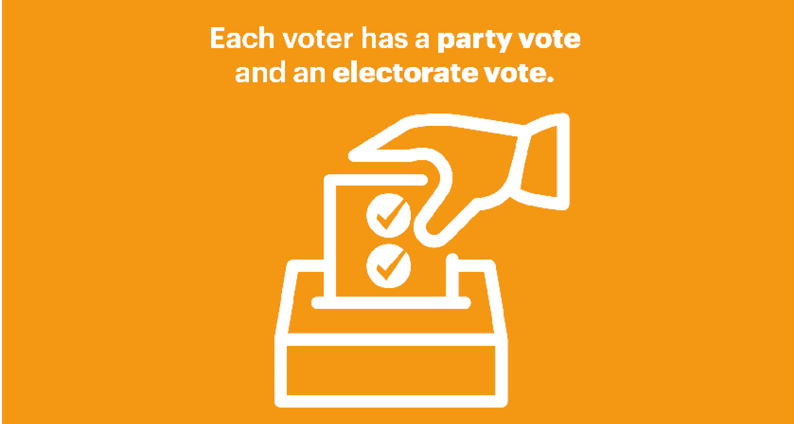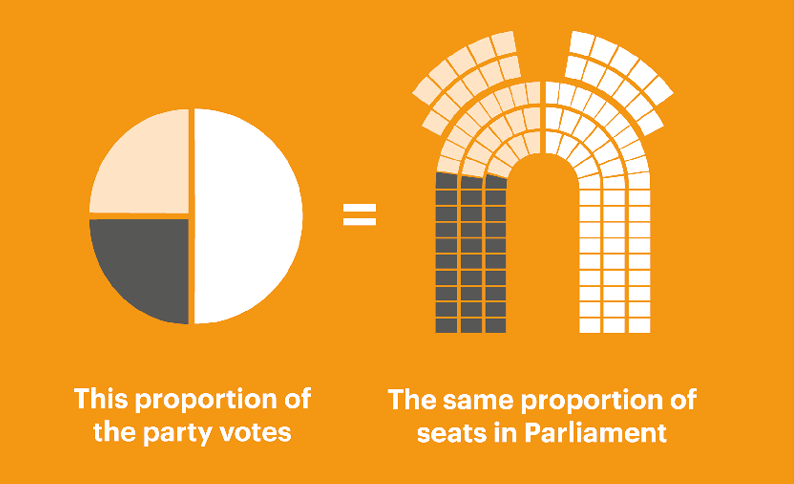MMP is the voting system we use in New Zealand. It stands for ‘Mixed Member Proportional’. We use MMP to choose who represents us in Parliament.
Parliament has 120 seats for its members of Parliament (MPs). During an election, political parties try to win as many seats in Parliament as they can.
You have two votes under MMP
Under MMP, you get two votes — a party vote and an electorate vote.

You vote for the political party you want to represent you
When you vote for a party, you help to choose how many seats in Parliament each party gets.
The party vote largely decides the total number of seats each political party gets. Parties with a bigger share of the party vote get more seats in Parliament. Parties also try to win as many electorate seats as possible.
You vote for the candidate you want to represent the area you live in
When you vote for a candidate, you help to choose who represents the electorate you live in. This is called your electorate vote. The candidate with the most votes wins, and becomes an MP.
Political parties try to win party votes and electorate votes
Political parties must get at least 5% of the party vote or win an electorate seat before they can have any seats in Parliament.
Because MMP is a proportional system, the share of seats a party wins in Parliament is about the same as its share of the party vote. This applies to big parties and small parties.

How seats in Parliament are allocated
Every candidate who wins an electorate gets a seat in Parliament. They are called electorate MPs.
The remaining seats are filled from party lists. Every party has a party list, which is a list of candidates ranked in the order the party wants those candidates to be elected to Parliament. Candidates elected from a party list are called list MPs.
Parties negotiate to form a government
Usually no party gets enough votes to govern alone. Parties often need to come to an agreement with other parties to form a government or pass legislation.
Some types of possible agreements are:
- coalitions — when two or more parties join together to form a government
- confidence and supply agreements — when one party agrees to support another on certain issues and laws that are voted on in Parliament.
